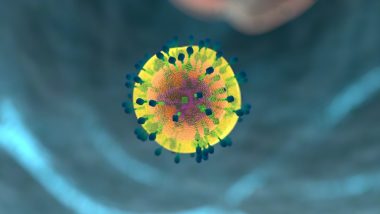Washington D.C. [USA], Feb 16 (ANI): A new study now sees experts developing a technique using patients’ own modified cells to treat Crohn’s disease. The study which has been successful on human cells is awaiting clinical trial of the treatment in the next six months.Researchers from the NIHR Guy's and St Thomas' Biomedical Research Centre (BRC) developed the technique by studying white blood cells taken from patients who have Crohn's disease, and comparing them to cells of healthy people.The research was published in the journal Gastroenterology.Their findings allowed cell therapy specialists in the BRC to develop a treatment involving taking patients' cells, and growing them in a special culture so that they behave more like cells from healthy people.Crohn's disease is a lifelong condition in which some parts of the digestive system become severely inflamed, causing a range of symptoms such as diarrhoea, stomach aches, tiredness and weight loss. Its causes are unknown, however, the immune system is known to play a part.Speaking about it, lead author of study Graham Lord said, “This is the next frontier in cell therapy, as we're going beyond treating the symptoms of Crohn's disease, and trying to reset the immune system to address the condition.”He further added, “It's a real home-grown treatment in the sense that we started with observing cells and tissues donated by patients at Guy's and St Thomas', have developed a treatment, and are now starting to undertake trials, all at the Trust. It shows how central patients are to research, helping to create a treatment that might help thousands more people."The researchers found that specialised white blood cells called regulatory T cells from Crohn's patients produced less of a gut-specific protein called integrin α4β7 than regulatory T cells from healthy people. Working with the specialists at the NIHR Guy's and St Thomas' BRC's Advanced Therapies Manufacturing Platform, they developed a cell therapy technique based on these findings.This technique involves developing cells from the Crohn's disease patients with a molecule called RAR568, which restores healthy levels of integrin α4β7. The cells are then given back to patients by intravenous infusion.Dr Peter Irving, a co-author on the paper, said, "While the treatments available for Crohn's disease have increased over recent years, they only work in some patients. In addition, the treatments have potentially serious side effects in some patients.”According to the study experts, the research paves the way for a trial of using patients' own cells to treat their Crohn's disease and we look forward to offering people the chance to take part in the very near future. (ANI)
Patients' Own Cells Could Help Treat Crohn's Disease
Washington D.C. A new study now sees experts developing a technique using patients’ own modified cells to treat Crohn’s disease. The study which has been successful on human cells is awaiting clinical trial of the treatment in the next six months.

Immune cells (Photo Credits: Pixabay)













 Quickly
Quickly

